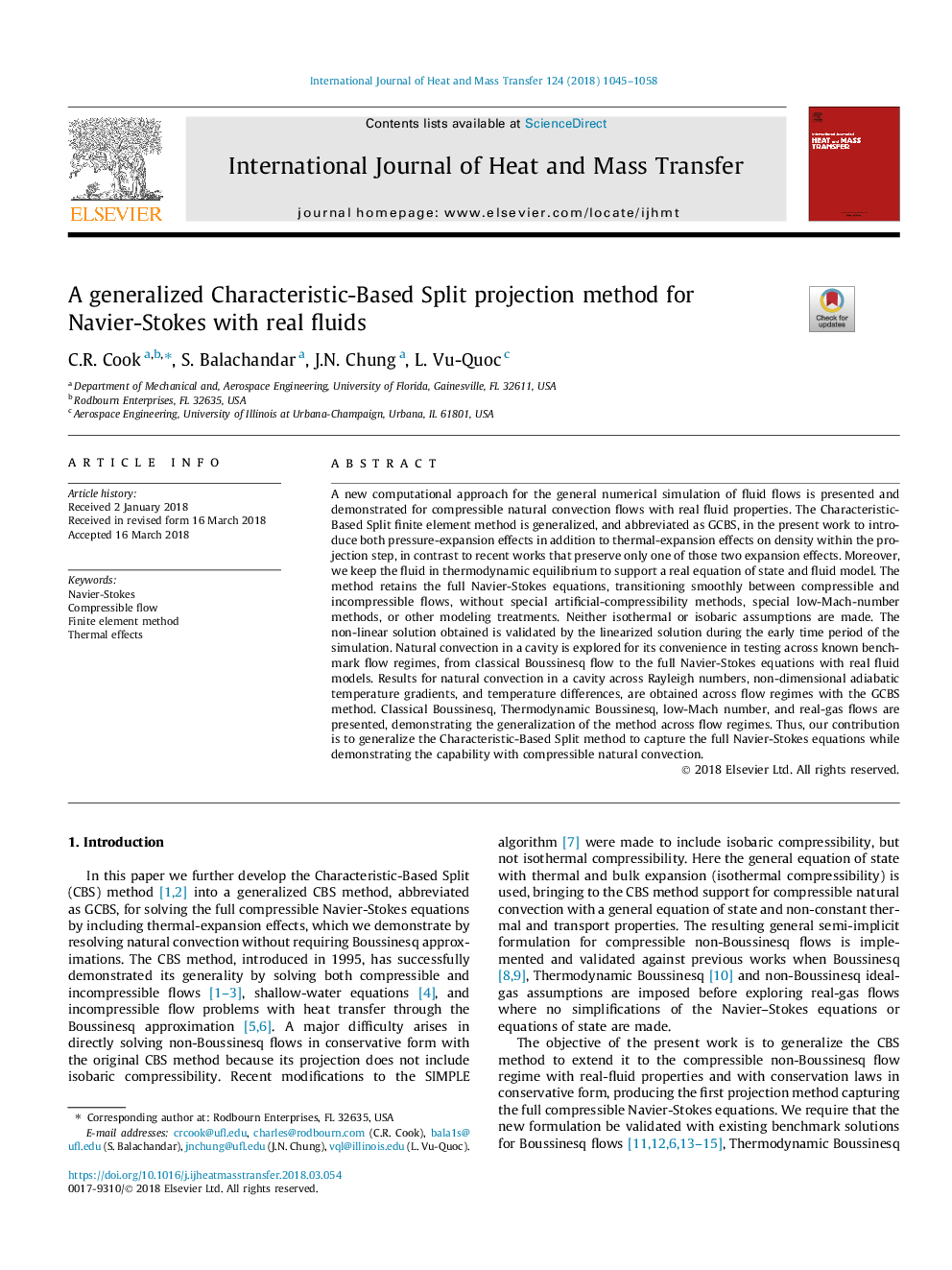| Article ID | Journal | Published Year | Pages | File Type |
|---|---|---|---|---|
| 7054283 | International Journal of Heat and Mass Transfer | 2018 | 14 Pages |
Abstract
A new computational approach for the general numerical simulation of fluid flows is presented and demonstrated for compressible natural convection flows with real fluid properties. The Characteristic-Based Split finite element method is generalized, and abbreviated as GCBS, in the present work to introduce both pressure-expansion effects in addition to thermal-expansion effects on density within the projection step, in contrast to recent works that preserve only one of those two expansion effects. Moreover, we keep the fluid in thermodynamic equilibrium to support a real equation of state and fluid model. The method retains the full Navier-Stokes equations, transitioning smoothly between compressible and incompressible flows, without special artificial-compressibility methods, special low-Mach-number methods, or other modeling treatments. Neither isothermal or isobaric assumptions are made. The non-linear solution obtained is validated by the linearized solution during the early time period of the simulation. Natural convection in a cavity is explored for its convenience in testing across known benchmark flow regimes, from classical Boussinesq flow to the full Navier-Stokes equations with real fluid models. Results for natural convection in a cavity across Rayleigh numbers, non-dimensional adiabatic temperature gradients, and temperature differences, are obtained across flow regimes with the GCBS method. Classical Boussinesq, Thermodynamic Boussinesq, low-Mach number, and real-gas flows are presented, demonstrating the generalization of the method across flow regimes. Thus, our contribution is to generalize the Characteristic-Based Split method to capture the full Navier-Stokes equations while demonstrating the capability with compressible natural convection.
Related Topics
Physical Sciences and Engineering
Chemical Engineering
Fluid Flow and Transfer Processes
Authors
C.R. Cook, S. Balachandar, J.N. Chung, L. Vu-Quoc,
